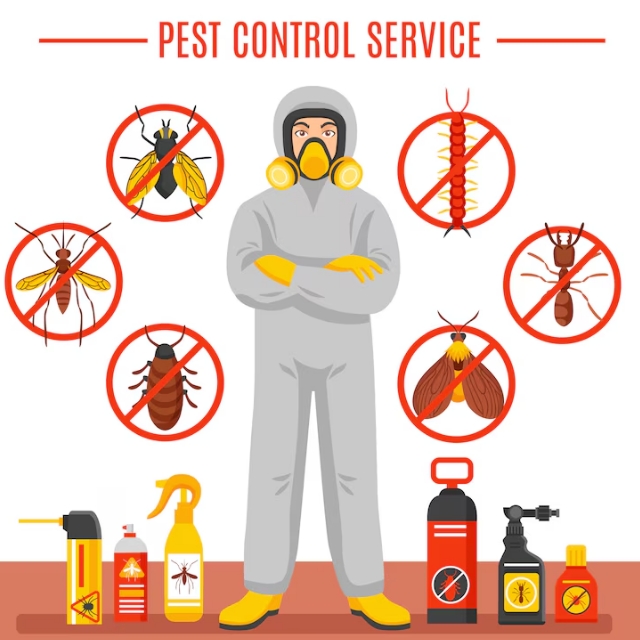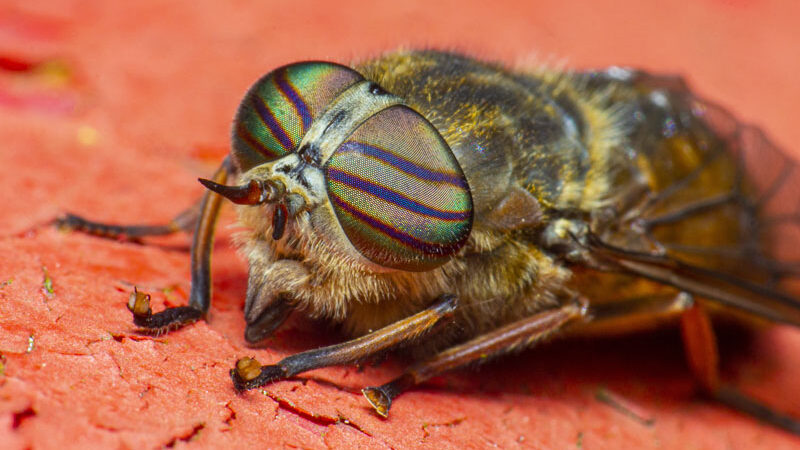Ant Pest Control for Gardens and Outdoor Spaces

Ants are intriguing organisms that serve essential ecosystem functions; nevertheless, they may be disruptive if they enter our gardens or outside spaces. To accurately cope with ant infestations, you must first comprehend how they act and then implement ant pest control in Maitland approaches that maintain ecological responsibility.
Understanding Ant Behaviour in Outdoor Settings
Ants are incredibly structured insects that form colonies and cooperate to acquire meals and build their nests. They are commonly drawn to sweet things like flower nectar or aphid honeydew in gardens. Furthermore, certain ants live underneath dirt or behind stones, making outdoor areas suitable for dwellings.
Symptoms of Ant Infestations
Ant invasions in gardens can be identified by obvious ant routes going to food sources, especially around plants or compost stacks. Ant nests are occasionally discovered by monitoring little heaps of earth or debris where ants come and leave. It is critical to detect these indicators promptly to prevent colonies from spreading and resulting in serious harm.
Organic and Sustainable Ant Control Techniques
Gardeners concerned about employing toxic substances can use a variety of organic and environmentally friendly alternatives to reduce ant infestations. One method is to interrupt ant tracks by cleaning them with a vinegar-water combination or distributing cinnamon or coffee grinds down their tracks, as these compounds repel ants while not damaging plants or helpful insects.
Preserving Garden Cleanliness and eliminating Attractants
Adequate garden cleanliness is essential for reducing the possibility of ant outbreaks. Pick up dropped fruits and vegetables, scraps, and food leftovers continuously to prevent ants from gathering. Keep trash cans well-covered and look into composting in covered containers to keep ants from decomposing organic debris.
Strategies for Employing Ant Baits
Ant traps may serve as an efficient method of managing ant infestations in gardens. These traps include attractants that entice ants and toxins transported away to the colony, effectively disposing of it gradually. Position baits along ant routes but far from plants to reduce the exposure of beneficial bugs.
Mechanical Obstacles and Physical Isolation
Ants may be kept out of garden beds and plants by putting up physical obstacles. Place adhesive tape across the bottom of plant stems or spray diatomaceous earth along garden boundaries to stop ants from mounting and nesting. Physical isolation tactics are safe and effective when combined with other management techniques.
Expert Support with Integrated Pest Management (IPM)
Expert pest control solutions, especially severe ant invasions, might be required in rare circumstances. Pest control specialists may evaluate the severity of the infestation and propose specific measures with no adverse environmental effects. Integrated Pest Management (IPM) systems emphasize preventive strategies and employ various biological, cultural, and chemical control techniques customized to individual garden conditions.
Assessing Ant Species and Taste
Ant species exhibit particular tastes for breeding places and sources of food. Certain ants, for example, enjoy damp environments, whilst others flourish in dry, sunny conditions. Recognizing these habits may assist gardeners in identifying suitable nesting locations and places where ants are likely to hunt for food, like near root systems or places with water.
Prevention Strategies to Reduce Ant Attraction
Prevention is essential for reducing ant invasions in gardens. Use tangible barriers like gravel or landscaping cloth to deter ants from breeding in garden beds. Furthermore, cutting plants out of buildings and structures helps minimize accessibility sites for ants wanting to enter gardens from nearby regions.
Natural Predators and Helpful Bugs
Natural predators and helpful bugs may assist in reducing ant infestations in gardens. Introduced predatory insects, including ladybugs or parasite wasps, may attack ant larvae and diminish colony growth. Keeping a diversified plant and insect ecosystem supports a healthy environment, which makes it more challenging for ants to develop huge communities.
Buddy Planting and Organic Pesticides
Specific plants, including mint, basil, and marigolds, have been proven to keep away ants owing to their unpleasant smells or chemical qualities. Integrating these plants into garden beds or utilizing their vital oils as organic repellents can prevent ants while avoiding artificial poisons. Furthermore, cultivating herbs and flowers that draw beneficial bugs might provide an organic barrier against ant outbreaks.
Surveillance and Early Interventions
Regularly examining garden zones for indicators of ant invasion is critical for a timely response. This examination involves exploring plant foliage for aphid infestations, as ants frequently guard aphids and feed on their honeydew. Managing aphid populations quickly using organic management approaches may interfere with the ant-aphid mutualism and minimize ant attractiveness to garden plants.
Climatic Factors for Ant Management
When selecting garden ant control techniques, choose those with negligible ecological impact. Preventing broad-spectrum pesticides that might kill beneficial bugs and pollinate organisms and wildlife is critical for preserving garden ecology. Instead, use specific remedies like insecticidal soaps or horticultural oils that kill ants while causing minor damage to other species.
Community Engagement and Learning
Connecting with gardening enthusiasts while exchanging information about efficient ant pest control methods can help to promote ecological gardening techniques. Conducting seminars or social events centred on integrated pest management (IPM) motivates gardeners to utilize sustainable ant control methods and supports collaborative efforts to preserve sustainable garden habitats.
Natural Soil Modifications and Nutrient Control
Ensuring high soil quality and adequate nutritional requirements in gardens inadvertently discourages ants by encouraging robust plant development and pest resistance. Applying organic soil modifications, including compost or aged manure, improves the soil’s composition and microbe activity, making the surroundings more hostile to ant nests and foraging.
Conclusion
Effective ant pest control in Newcastle in gardens and outdoor spaces involves understanding ant behaviour, using eco-friendly methods, and maintaining garden hygiene. By employing these strategies, gardeners can minimize ant populations while promoting a healthy and balanced ecosystem. Patience and consistency are crucial to long-term success in managing ant infestations without compromising your garden’s natural beauty and sustainability.



